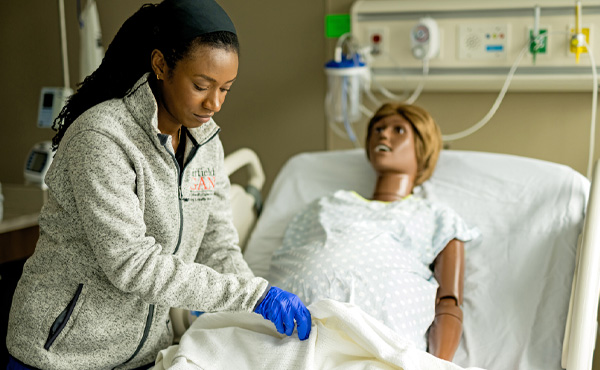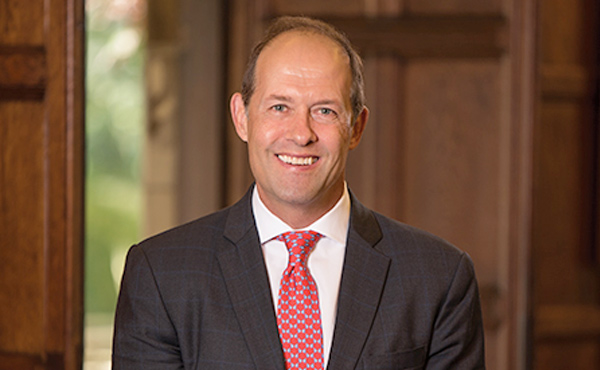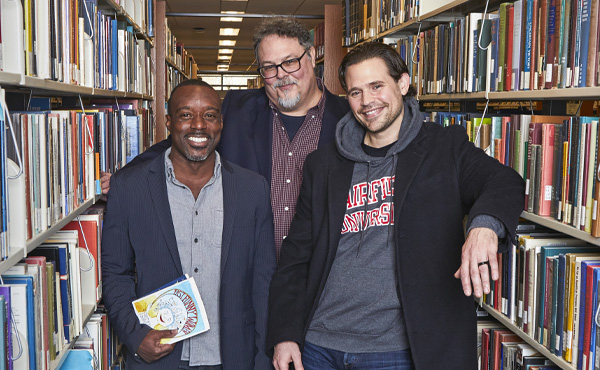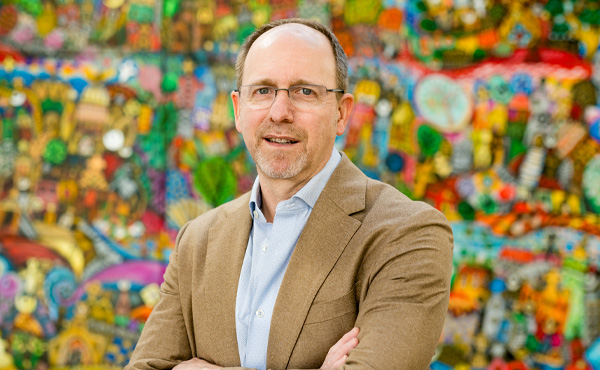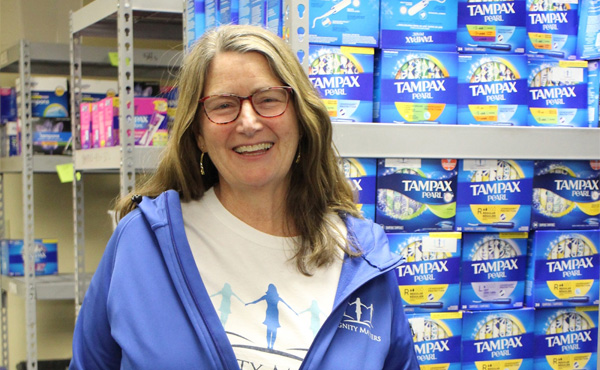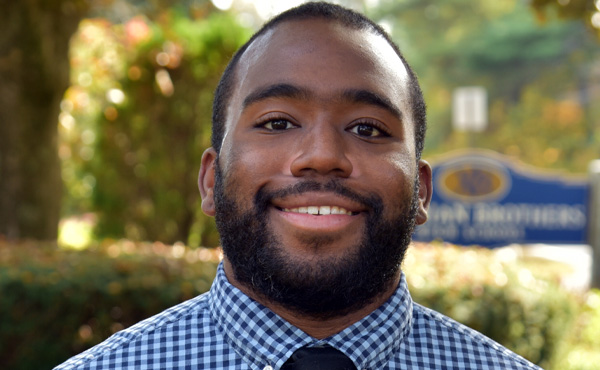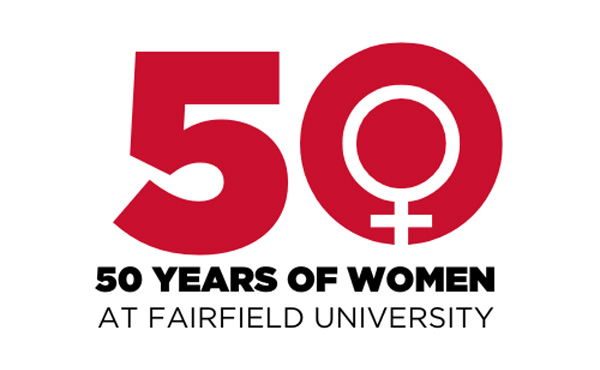The maternal mortality rate in the United States is higher than that of any other developed country. The Center for Disease Control (CDC) reports that more than 1,200 women die within a year of giving birth — due to infection, high blood pressure, or hemorrhage. Of these numbers, Black women experience mortality rates three times higher than white women.
How birthing persons are supported and cared for during the birth of their child sets forth a cascade of either positive or negative health outcomes for themselves and their child. Notably, midwifery care has a track record of positive outcomes, setting the stage for improved health.
— Jenna LoGiudice ’06, PhD, CNM, RN, FACNM, FAAN (Nurse Midwifery DNP program director)
"This disparity points to the question of why inequities in maternal healthcare exist and, of critical importance, what is being done to combat them,” wrote associate professor and Nurse Midwifery DNP program director Jenna LoGiudice ’06, PhD, CNM, RN, FACNM, FAAN in her article, “Reducing Racial Disparities in Maternal Healthcare: A Midwifery Focus.”
To address this disparity, the Marion Peckham Egan School of Nursing and Health Studies Doctor of Nursing Practice (DNP) – Nurse Midwifery program and the federal Health Resources Services Administration (HRSA) are working together to increase the number of midwives from diverse backgrounds in the field
Fairfield recently received a major $1.22 million federal grant to train more midwives, and to increase diversity within the field.
The Egan School launched its doctor of midwifery program in the fall of 2017 and has since graduated nine nurse midwives who are all certified and working in the field to combat maternal health disparities.
On the importance of expanding the pipeline of midwife care, Dr. LoGiudice said, “How birthing persons are supported and cared for during the birth of their child sets forth a cascade of either positive or negative health outcomes for themselves and their child. Notably, midwifery care has a track record of positive outcomes, setting the stage for improved health.”
Midwives are trained to approach patient care from a holistic point of view, knowing that through shared decision-making and compassionate care they can improve health outcomes. They provide reproductive healthcare to persons across the lifespan, including primary care, prenatal care, care during labor and birth, postpartum care, and routine gynecological care.
At the center of Fairfield’s midwifery initiative is program director Dr. LoGiudice. In her writing, she highlights a distinct contrast between the U.S. and other developed nations like Germany, Sweden, and Canada, where midwives play a bigger role in the healthcare system.
While midwives attend 50 to 75 percent of births in other developed nations, only 10 percent of births in the U.S. are attended by midwives, as cited by researcher Steffi Goodman in a recent study. Research has shown that births attended by midwives correlate with higher rates of positive healthcare outcomes such as a higher rate of spontaneous vaginal births and lower rates of preterm birth.
This fall, Dr. LoGiudice was awarded the $1.22 million over four years from HRSA through the Maternity Care Nursing Workforce Expansion (MatCARE) Program.
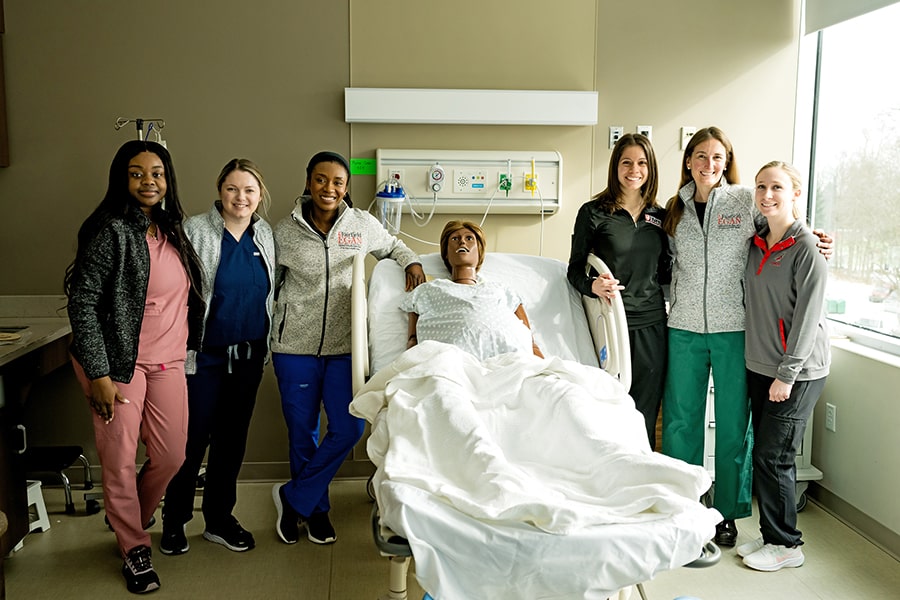
Midwifery program students (l-r) Jeneice Collins, Rachel Demers, Susana Odoom, Brigid Forte, and Sarah Collins, with program director Dr. LoGiudice (2nd from right).
With this grant, she wrote “we are able to increase the number of midwives to support birthing people to confidently achieve their healthcare goals while working to eliminate maternal and neonatal morbidity and mortality, particularly for Black birthing persons.”
The goals of the grant are to increase diversity within the midwifery community and to incorporate more trauma-informed care and implicit bias education for all students in the program. The grant also provides tuition assistance to current students.
Rachel Demers ’19, a labor and delivery nurse at Stamford Hospital, is a current DNP midwifery student, balancing long shifts at work with her studies in the challenging program. “Having a grant that offers financial assistance for more students to come to the school and more opportunities to go to conferences will make the program grow,” said Demers. “Growing the midwifery workforce is going to make a difference and help the disparities that we have in healthcare.”
Fairfield graduate midwife Grace (Lessard) Hovey ’15, DNP’20, CNM, RN felt the call to become a midwife during her undergraduate clinical rotation. “I felt like it clicked, and I finally found my niche,” she said. “Having the opportunity to see midwives in action, supporting women in different clinical settings, really was what drove me to want to take the next steps in my education and further my scope of practice.”
Dr. Hovey works as a midwife at a Yale affiliated private practice, Sound Obstetrics and Gynecology, in Shelton, Connecticut, and serves as a preceptor in Fairfield’s midwifery program. At work, she sees an average of 20 patients a day, ranging in age from 13 to early 80s. According to Dr. Hovey, it is a common misconception that midwives are just there for pregnancy, when in fact they treat patients across the lifespan.
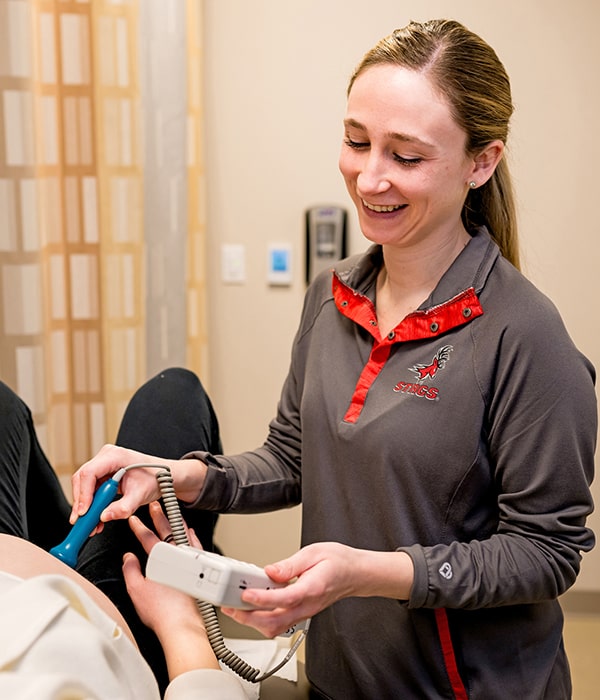
The program prepares students for every stage and setting in which midwifery care is delivered to women.
“There are advantages to having a midwife versus a traditional OBGYN,” said Dr. Hovey. “It’s a different style of care; we pick up on a lot of things. Midwives have the ability to help women take a breath, take a step back, and find a solution to any difficulty they may have, while also making sure it fits in the context of their life as best as possible.” Several miles away in New Haven, Emily Baldwin ’16, DNP’20 serves as a certified midwife at the Center for Women’s Health and Midwifery, providing prenatal care, education, lactation counseling, and postpartum care in an ambulatory setting. During a typical day, Dr. Baldwin conducts preventive annual exams, acute problem visits, prenatal and postpartum visits, and procedures. She notes that the most rewarding part of being a midwife is connecting with her patients and earning their trust.
“I see so many young women who have never seen an OBGYN professional before and are so scared during their first visit,” she said. “I take pride in calming their nerves, explaining every part of the visit, and reminding them they are in control and can say no to anything that makes them uncomfortable.”
An example of this that has stayed with Dr. Baldwin happened during a procedure to remove a Nexplanon, a contraceptive implant, from a patient’s arm; removal can cause patient anxiety, due to fear of pain.
“I started to remove the Nexplanon and [the patient] started to tear up and said she wasn’t ready,” shared Dr. Baldwin. “I immediately stopped and reminded her she was in control and we would wait until she was ready. She started to cry in relief and told me, ‘A doctor has never said that to me before, they always just keep going.’ The conversation really made me rethink the patient-provider relationship and how patients of all races, ethnicities, and genders can experience medical trauma. As providers we can so easily fix that narrative with kindness, empathy, and compassion.”
